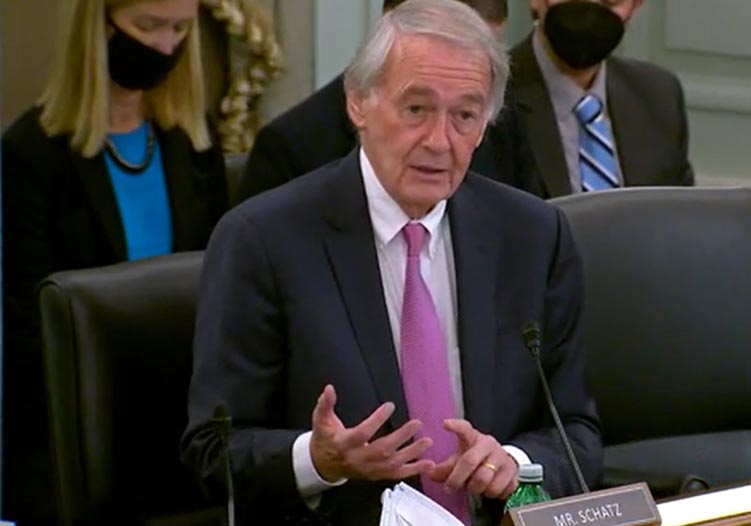Facial Recognition Ban Bill Proposed
Would prevent government from using technology

The smarter way to stay on top of the multichannel video marketplace. Sign up below.
You are now subscribed
Your newsletter sign-up was successful
A group of congressional Democrats from both the House and Senate have introduced a bill banning the use of facial recognition and similar technologies by the government, which they suggest have been weaponized against minorities by the police.
It is yet another privacy and data-collection volley by Congress against Big Tech, in this case specific tech in the hands of government officials. It also has free speech implications if it is used to stifle protests.
The Facial Recognition and Biometric Technology Moratorium Act comes in response to reports of the growing use of the technologies by local, state and federal agencies, including law enforcement, combined with what the legislators said have been false facial recognition matches, particularly affecting Black men.
Also: Amazon Suspends Sale of Facial Recognition Tech to Police
In introducing the bill, the legislators cited research they said found that Black, Brown and Asian people were “up to 100 times” more likely to be misidentified by such technologies.
“The year is 2023, but we are living through 1984,” said Sen. Ed Markey (D-Mass.), a longtime advocate for tougher privacy laws and one of the lead sponsors of the bill. “The continued proliferation of surveillance tools like facial recognition technologies in our society is deeply disturbing. Biometric data collection poses serious risks of privacy invasion and discrimination, and Americans know they should not have to forgo personal privacy for safety. As we work to make our country more equitable, we cannot ignore the technologies that stand in the way of progress and perpetuate injustice.”
The bill was applauded by the American Civil Liberties Union and Fight for the Future, among others. ■
The smarter way to stay on top of the multichannel video marketplace. Sign up below.
Contributing editor John Eggerton has been an editor and/or writer on media regulation, legislation and policy for over four decades, including covering the FCC, FTC, Congress, the major media trade associations, and the federal courts. In addition to Multichannel News and Broadcasting + Cable, his work has appeared in Radio World, TV Technology, TV Fax, This Week in Consumer Electronics, Variety and the Encyclopedia Britannica.

